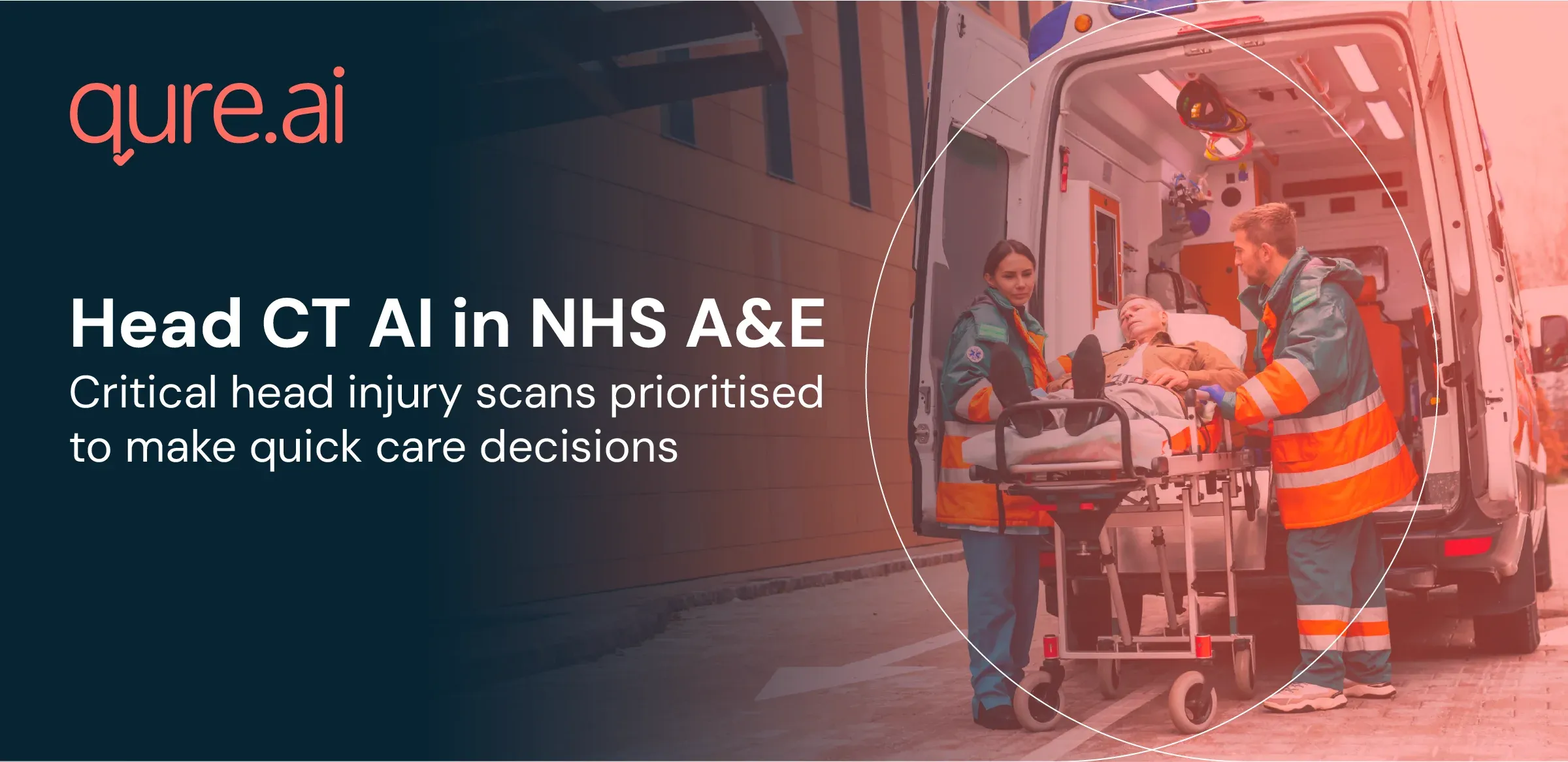First of four NHS sites roll out head-CT AI to highlight critical head injury scans

Back
A pioneering new multi-NHS site initiative has gone live, aiming to improve radiology report turnaround times for non-contrast CT head scans by creating prioritised reporting worklists of critical findings. This will allow Emergency Department (ED) clinicians at the Queen Elizabeth University Hospital in Glasgow to make faster decisions about the care, management and discharge of patients with head injuries.
The project called ACcEPT (Assess the Clinical Effectiveness in Prioritising CT Heads) commenced at NHS Greater Glasgow and Clyde, the first of four planned NHS sites across the UK, utilising qER, the head CT Artificial Intelligence (AI) solution from Qure.ai. The AI roll-out comes in time to assist with mid-winter frontline accidents & emergency pressures.
In the first initial weeks of the head CT AI implementation over the 2023/24 winter period, qER analysed 651 non-contrast head CTs, detecting 128 head injuries including cranial fractures, intracranial haemorrhage (ICH), mass effect and mid-line shift within the brain. The intracranial pathologies were identified and prioritised by the qER AI solution as critical findings for radiologist review, confirmation, treatment planning and / or discharge out of ED.
“Emergency Departments across the country continue to face challenges over winter with one person presenting at a UK ED every 90 seconds, potentially requiring brain imaging. By utilising the opportunities of innovative AI to help prioritise urgent cases, we will look to deliver critical interventions whilst improving workflow and time in the ED for patients with normal scans. The study looks to provide evidence to support adoption of AI across 4 centres in the UK. We hope this will support clinical teams in decision making to deliver critical clinical care, reassurance and, when appropriate, discharge, releasing capacity and space for patients in our pressured system,” states Professor David Lowe, Professor of Health Innovation at the University of Glasgow and Emergency Medicine Consultant at NHS Greater Glasgow and Clyde.
Denise Brown, Director of Digital Services at NHS Greater Glasgow and Clyde states, “It is important to establish reliable evidence on the impact and value of AI solutions, and to determine how they best support clinical decision making. Our Digital Strategy’s Enabled by AI Programme brings together NHS Greater Glasgow & Clyde’s expertise on research, innovation and the operation of AI solutions at scale, while working closely with colleagues in academia.”
Darren Stephens, Senior Vice President & Commercial Head, UK and Europe at Qure.ai states, “This is an exciting step forward for AI in NHS Emergency Departments. Providing digital health tools that can create calm and give informed prioritisation of urgent cases to support stretched clinical teams, especially at night or weekends, is very advantageous. It may help reduce CT scan-to-reporting turnaround times and give rapid alerts of critical findings that will boost the speed of treatment given to patients.”
The ACcEPT qER study is award funded by the NHS AI Lab programme run by the NHS Accelerated Access Collaborative (AAC) in partnership with the National Institute for Health Research (NIHR). It aims to evaluate the use of AI to support clinicians analysing the CT scans of patients with head injuries, leading to faster treatments and better outcomes for patients. It will assess the value of the AI tools in situations where there is a shortage of trained radiologists to analyse the scan images, particularly during out-of-hours.
The full ACcEPT collaboration team includes: medical imaging AI innovator, Qure.ai; Hardian Health for health economic evaluation; the University of Glasgow’s Digital Health Validation Lab (DHVL), a Living Laboratory for Precision Medicine project aimed at fast-tracking digital health technologies into clinical settings; West of Scotland Innovation Hub; NHS SafeHaven; NHS Greater Glasgow and Clyde; Oxford University Hospitals NHS Foundation Trust; Northumbria Healthcare NHS Foundation Trust; and Guy’s and St Thomas’ NHS Foundation Trust.